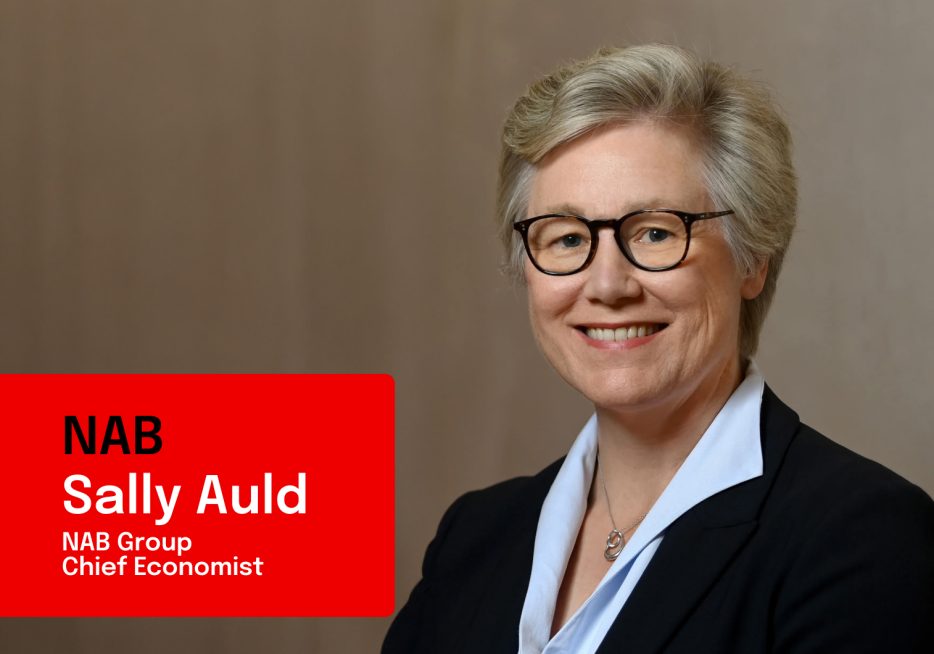We hear from NAB Group Chief Economist, as she shares her latest economic update. Watch now.


Jillamatong’s pastures are lush and weed free yet Martin Royds spends next to nothing on biocide sprays – and has even sold his ploughs. He discusses the role of holistic management in creating a drought-resistant environment for raising healthy cattle

Martin Royds hasn’t sprayed his pastures with herbicides for over 20 years yet they’re weed free, lush and healthy. He explains how holistic management has increased productivity and the value of his beef cattle farm.
One of the first things other farmers notice about Jillamatong is that there are no weeds in the pastures.
“They’re interested to know what herbicides I use – but I haven’t sprayed for over 20 years,” says Martin Royds, who features on the July pages of this year’s NAB Agribusiness Calendar.
The turning point came after the 1982 drought when Royds saw his topsoil blow away. He started to investigate different ways of farming and, later, became involved with Landcare, a national network of locally-based community groups who care for Australia’s natural resources.
“Landcare changed my way of thinking,” he says. “I did a holistic farm management course and my goals changed from producing as much beef as I could with whatever chemicals were available to focusing on working with nature, building biodiversity above and below the ground and using stock management and biological products to build soil carbon.”
Jillamatong occupies 453 hectares five kilometres south-west of Braidwood in the New South Wales’ Southern Tablelands. When Royd’s grandparents bought the property in the 1950s, they built the original two paddocks up to 12. Royds has increased this to 50 to support planned grazing.
“I run up to 1000 head of cattle in two mobs and move them around to rest the pasture,” he says. “I’m using them as a tool to keep on improving biodiversity and soil carbon.”
The cattle graze on about 80 different herbs and grasses, most of them drought-resistant native species.
“I used to think I had to keep the pasture short to reduce the burden of parasites, but short grass created problems with water conservation,” he says. “After a shower, most of the rain evaporated as soon as the sun came out. Because the soil was compacted, baked and hard, heavier rains ran off as a flash flood. Now I have long, thick and healthy pasture the soil stays soft enough to absorb and hold on to water. Even when the Shoalhaven River dried up in 2009, my creek kept on running and the farm stayed green.”
Soft, moist soil is also the perfect environment for worms.
“They’re my farmers,” says Royds. “I see no reason to plough or re-sow pasture for grazing when I have worms to do the work for me. I even sold all my ploughs.”
Royds produces 90 percent of his fertilisers using worm farms, compost heaps, compost teas and biodynamic preparations.
“Now I spend next to nothing on fertilisers, biocides and animal treatments,” he says. “That means I have more to invest in things that have a positive impact on productivity and the value of the farm, such as planting trees and slowing the flow of water through the land.”
He’s diversified into harvesting native grass seed, truffles, garlic and yabbies – and was surprised to find holistic management has improved the nutritional value of his meat.
“A national testing authority recently found that my beef has the ideal 1:1 ratio of omega-3 and omega-6 fatty acids, which is thought to be much better for you than the 1:8 ratio you find in beef from a feedlot,” he says. “I sell a lot of beef directly to people who appreciate the difference and we’re also looking at exporting to China.”
Royds’ awards include the 2011 National Carbon Cocky Award for Outstanding Best Practice. He was a finalist in the 2010 ABC/Kondinan Australian Farmer of Year Awards and named one of the Landcare Champions of the Catchment for 2014.
“I used to wake up every morning and think about the battles I had to face,” he says. “Now I’m working with the land rather than against it I think about positive ways to make it more productive, and that’s a good feeling.”
More from NAB:
© National Australia Bank Limited. ABN 12 004 044 937 AFSL and Australian Credit Licence 230686.